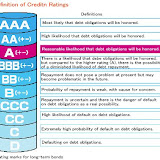So the breaking news has it that Jeffrey Pullicino Orlando has submitted a Private Members’ Bill for the introduction of divorce. It’s a bolt out of the blue (or the fringe blue) and it would be good to see what we do know about the facts until now and what we could speculate about:
- Sources from the PN have told the Times that this was a personal initiative of JPO and was not discussed at the level of the PN parliamentary group. Will the PN keep its distance from the bill? Will it claim ownership of the initiative? Are any of these two questions relevant as to whether the bill has any hope of becoming law?
- The bill will not be discussed/voted upon before summer recess which gives the PLPN enough reflection time (and time to gauge the reaction) until the re-entry after summer. A well timed bill from that aspect one must say.
- Vote-wise we should definitely have PL’s MP’s given the freedom to vote as their conscience tells them. From this point of view PL will have the carpet swept from under its feet. The bluff of the “progressive party” with no real clear stand on the introduction of divorce is being called before the next election. The “divorce” promise will hopefully not be a conning addendum in the catch-all excuses for a manifesto come next election.
- Equally we could finally get a clear picture of what the PN makes of this kind of subject without either the hedging or the ayatollah style pronunciation depending on the interlocutor.
- AD has already welcomed the bill and congratulated JPO. No prizes for guessing where there votes would go should they make it to parliament (highly unlikely given the current attitude to electoral system reform).
- The dice are cast for the opening of a practical debate on the introduction of divorce with an actual aim and deadline – the vote on the Private Bill.
Well done JPO. Of course the bets are now open to discuss whether JPO’s move was another renegade mission or a convenient PN move that allows it to keep its distance and act with two heads – the mainstream line (still not ready to introduce divorce) and the renegade marginals prepared to accomodate a more liberal philosophy. Rainbow politics once again? If so hats off to Macchiavelli.
Related articles by Zemanta
- EU divorce enhanced cooperation (doesn’t affect Ireland) (politics.ie)
- Divorce, Maltese style | Jessica Abrahams (guardian.co.uk)


![Reblog this post [with Zemanta]](http://img.zemanta.com/reblog_e.png?x-id=0fe1a683-8e47-4199-8988-cbbfd76f2a02)
![Reblog this post [with Zemanta]](http://img.zemanta.com/reblog_e.png?x-id=9cd1c1ff-4ecc-470d-a9fc-2d1b18c570cc)

![Reblog this post [with Zemanta]](http://img.zemanta.com/reblog_e.png?x-id=fb77a219-6093-4f19-8998-28d2e11cd7a5)

![Reblog this post [with Zemanta]](http://img.zemanta.com/reblog_e.png?x-id=7d94c10c-ce7d-43e5-9fb6-81c86e9034aa)
![Reblog this post [with Zemanta]](http://img.zemanta.com/reblog_e.png?x-id=bc80db92-157d-4c53-9a34-ea65a50a9e0f)